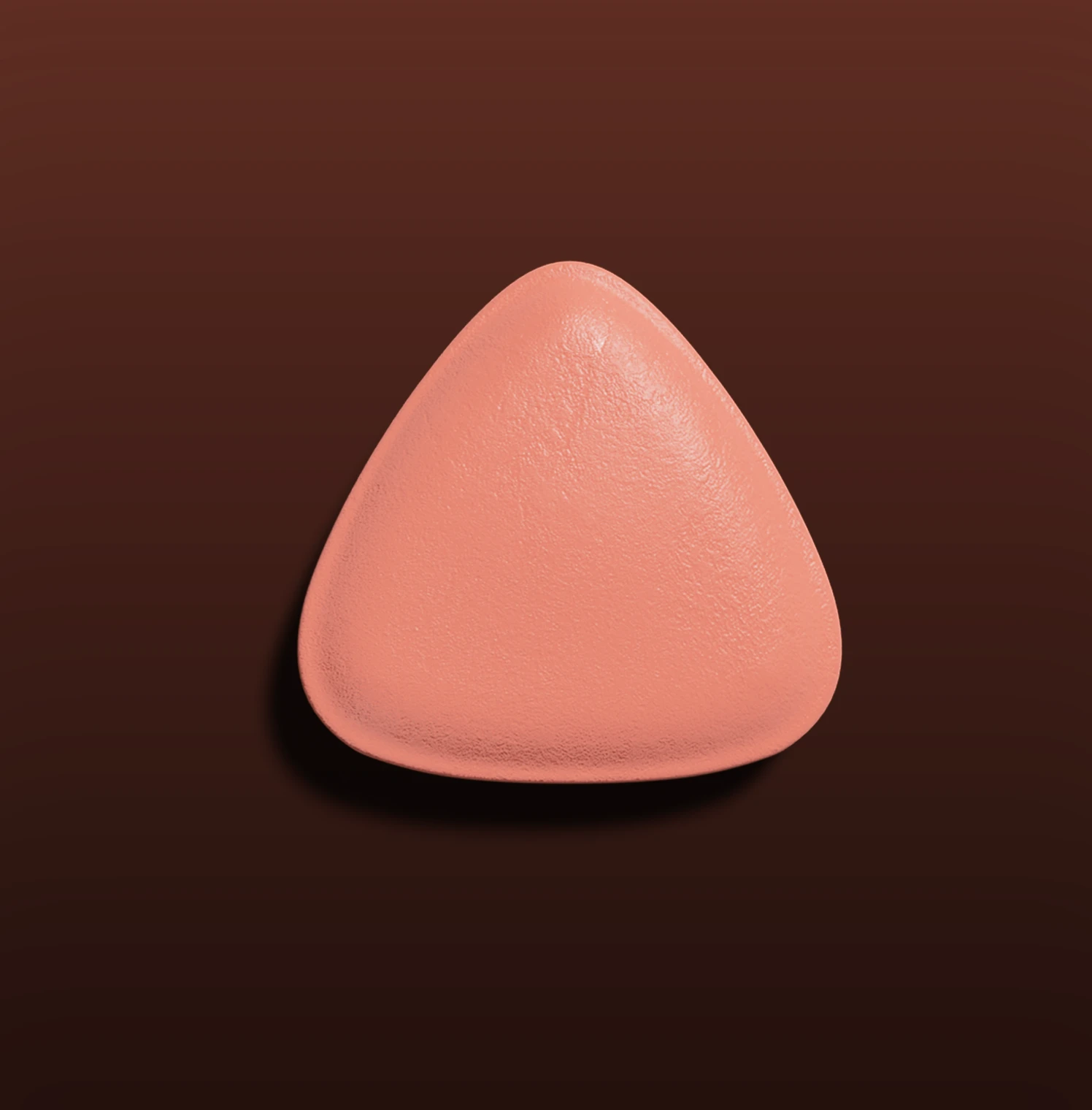Contents
Testosterone often gets labeled as just a sex hormone, but it’s so much more than that. While it’s true that testosterone plays a key role in libido and sexual function, it also supports muscle mass, bone density, blood cell production, and much more.
So when your testosterone levels decrease, everything can feel off-balance. The good news? There are natural, sustainable ways to support healthy testosterone production without jumping straight to hormone replacement therapy or prescription medications. Let’s break it down.
What Does Testosterone Do?
Testosterone is a hormone primarily produced in the testicles (in men) and the ovaries (in women), with smaller amounts made by the adrenal glands. In men, it plays a leading role in (Testosterone Therapy, 2024) (Nassar, 2023):
Sexual health: Drives libido, supports erectile function, and is essential for sperm production.
Muscle mass and strength: Promotes muscle protein synthesis and supports athletic performance.
Fat distribution: Helps regulate body fat levels and distribution.
Bone density: Supports healthy bones and reduces the risk of osteoporosis.
Facial and body hair: Responsible for stimulating hair growth on the face, chest, back, arms, legs, and pubic area.
Blood cell production: Alters iron metabolism and stimulates red blood cell production
Testosterone levels naturally begin to decline around age 30 to 40, dropping about 1% per year. That decline is normal—but lifestyle factors like poor diet, chronic stress, lack of sleep, and a sedentary routine can accelerate it. (Testosterone Therapy, 2024)
Why Maintaining Healthy Testosterone Levels Matters
Low testosterone (also known as “low T”) can manifest in many different ways. Symptoms may include (Testosterone Therapy, 2024) (Sizar, 2024):
Low libido or erectile dysfunction
Fatigue or low energy
Difficulty building or maintaining muscle
Increased body fat (especially around the midsection)
Brain fog or poor concentration
Depressed mood or low self-confidence
Reduced motivation or drive
Low testosterone levels can have a significant impact on your quality of life. This is why supporting your body’s natural testosterone production is so important, especially as you age.
How to Boost Testosterone Naturally
Before turning to medications or supplements to improve your hormone levels, it can be helpful to look at your daily habits. Many of the most effective testosterone-boosting strategies are surprisingly simple, backed by science, and great for your overall health. Here’s how to support your T levels naturally:
1. Maintain a Healthy Weight
Carrying excess body fat, especially visceral fat around your abdomen, can lead to lower testosterone levels. (Sizar, 2024) As visceral fat increases, more fat cells convert testosterone into estrogen via the enzyme aromatase, which further reduces circulating testosterone. (Edwards, 2020) Maintaining a healthy weight can have a positive impact on testosterone levels. In fact, it’s estimated that with every one-point drop in your body mass index (BMI) your testosterone level will increase by approximately 1 point. (Edwards, 2020)
Speak with your provider about what a healthy weight looks like for your age and height, and incorporate healthy routines to maintain this weight. Some healthy habits include:
Eat a whole-food, nutrient-rich diet
Drink lots of water
Avoid processed, fatty foods
Avoid extreme calorie restriction
2. Exercise Regularly—Especially Strength Training
If there’s one lifestyle change that consistently supports testosterone, it’s regular physical activity. Research shows that a combination of aerobic (increase in heart rate) and resistance (weightlifting) training has been found to increase testosterone production. (Edwards, 2020)
However, it’s vital that you stick to healthy levels of exercise. Overtraining or excessive exercise paired with calorie restriction can have the opposite effect, leading to a deficiency in testosterone. (Edwards, 2020)
Bonus: Exercise also improves insulin sensitivity and helps regulate body fat, both essential for hormonal health.
3. Get Enough High-Quality Sleep
Getting regular, high-quality sleep is important for testosterone production. In fact, testosterone production actually peaks during REM sleep, making it essential that men sleep for at least 7-9 hours every night. (Edwards, 2020) Research shows that sleep restriction had a significant effect on testosterone levels when compared to those not experiencing sleep restriction. (Leproult, 2015)
Tips for better sleep:
Stick to a consistent sleep schedule—even on weekends.
Limit blue light exposure an hour before bed.
Avoid alcohol and heavy meals late at night.
Create a cool, dark, and quiet sleep environment.
4. Manage Stress
Chronic stress causes an increase in the hormone cortisol, which has been shown to interfere with testosterone production. (Rahardjo, 2023) It’s common for many people to feel stressed due to work, relationship troubles, mental health, and other factors.
If you are frequently stressed, try speaking to a professional about counseling options and healthy stress management, such as meditation, deep breathing exercises, yoga, low-impact exercises, etc. (Cleveland Clinic, 2023)
5. Optimize Your Diet
What we eat plays a big role in our overall health, as well as hormone production. A diet lacking in essential nutrients can directly impact testosterone synthesis. One study found that a diet rich in whole foods and green vegetables, and low in bread and pastries, dairy products, and sweets, is more associated with healthy testosterone levels. (Hu, 2018)
While data is still needed, the following nutrients have been linked to the support of healthy hormone levels, including testosterone (Zamir, 2021):
Zinc
Vitamin D
Magnesium
6. Reduce Alcohol and Cut Out Other Substances
Using illegal substances, tobacco, and alcohol can all have a negative effect on your hormones and testosterone levels. Heavy drinking specifically has been tied to reduced T levels as well as poor sleep and weight gain—two factors that have a negative impact on testosterone. (Koh, 2022)
If you do decide to drink alcohol, you should limit yourself to 2 or fewer drinks per day, and no more than 14 drinks in one week, per the National Center for Health Promotion and Disease Prevention guidelines.
When to See a Professional
If you’ve implemented natural strategies and still feel symptoms of low T—such as fatigue, low libido, or muscle loss, it may be worth getting your hormone levels tested. Blood work can give you a clear picture of whether testosterone or other hormones (like cortisol or thyroid hormones) are out of balance.
Even if you’re not ready for testosterone replacement therapy, a men’s health provider can guide you towards solutions that target your unique needs or symptoms, such as medications for erectile dysfunction and libido, hair growth supplements, weight loss medications, and more.
Rugiet offers a range of treatment options tailored to men’s health. Explore what we have to offer, and connect with a provider today.
The Bottom Line
You don’t need to rely on prescription drugs or drastic measures to support your testosterone levels. The foundation of hormonal health starts with the basics: good nutrition, consistent movement, quality sleep, and stress management. These strategies won’t just improve your testosterone- they can improve your health, confidence, and performance in every area of life.
Citations
Testosterone therapy: Potential benefits and risks as you age. Jan. 19, 2024. Mayo Clinic. https://www.mayoclinic.org/healthy-lifestyle/sexual-health/in-depth/testosterone-therapy/art-20045728
Nassar GN, Leslie SW. Physiology, Testosterone. [Updated 2023 Jan 2]. In: StatPearls [Internet]. Treasure Island (FL): StatPearls Publishing; 2025 Jan-. Available from: https://www.ncbi.nlm.nih.gov/books/NBK526128/
Sizar O, Leslie SW, Schwartz J. Male Hypogonadism. [Updated 2024 Feb 25]. In: StatPearls [Internet]. Treasure Island (FL): StatPearls Publishing; 2025 Jan-. Available from: https://www.ncbi.nlm.nih.gov/books/NBK532933/
Robert Z. Edwards. Updated May 1, 2024. Improving Low Testosterone Naturally. https://www.va.gov/WHOLEHEALTHLIBRARY/tools/improving-low-testosterone-naturally.asp
Leproult, R., & Van Cauter, E. (2011). Effect of 1 week of sleep restriction on testosterone levels in young healthy men. JAMA, 305(21), 2173–2174. https://doi.org/10.1001/jama.2011.710
Rahardjo, H. E., Becker, A. J., Märker, V., Kuczyk, M. A., & Ückert, S. (2023). Is cortisol an endogenous mediator of erectile dysfunction in the adult male?. Translational andrology and urology, 12(5), 684–689. https://doi.org/10.21037/tau-22-566
Erectile Dysfunction. 08/28/2023. Cleveland Clinic. https://my.clevelandclinic.org/health/diseases/10035-erectile-dysfunction
Hu, T. Y., Chen, Y. C., Lin, P., Shih, C. K., Bai, C. H., Yuan, K. C., Lee, S. Y., & Chang, J. S. (2018). Testosterone-Associated Dietary Pattern Predicts Low Testosterone Levels and Hypogonadism. Nutrients, 10(11), 1786. https://doi.org/10.3390/nu10111786
Zamir, A., Ben-Zeev, T., & Hoffman, J. R. (2021). Manipulation of Dietary Intake on Changes in Circulating Testosterone Concentrations. Nutrients, 13(10), 3375. https://doi.org/10.3390/nu13103375
Koh, K., Kim, S. S., Kim, J. S., Jung, J. G., Yoon, S. J., Suh, W. Y., Kim, H. G., & Kim, N. (2022). Relationship between Alcohol Consumption and Testosterone Deficiency according to Facial Flushes among Middle-Aged and Older Korean Men. Korean journal of family medicine, 43(6), 381–387. https://doi.org/10.4082/kjfm.21.0173


